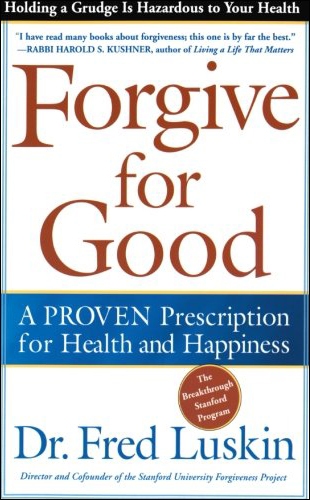Dr. Fred Luskin has a Ph.D. in counseling and health psychology. He is the cofounder and director of the Stanford University Forgiveness Project. In this eye-opening work, Luskin shares the research, insights, and techniques he has distilled since 1996, including lessons from his training sessions with Catholics and Protestants in Northern Ireland who have lost family members to the 30 years of political violence there.
"Forgiveness," notes the author, "is a complex experience that changes an offended person's spiritual feelings, emotions, thoughts, actions, and self-confidence level. I believe learning to forgive the hurts and grudges of our life may be an important step for us to feel more hopeful and spiritually connected and less depressed." Behind much of the pain, suffering, and loss in our lives is the story we tell ourselves about how we were mistreated.
Luskin calls this process the grievance story or as he cleverly puts it, "renting too much space to disappointment." First, we exaggerate how much we have been offended by a parent, friend, boss, or mate. Then we blame everything on this person and nurture the pain we feel over an extended period of time. By dwelling on our wounds, we give them power over us. Such grievance stories can lead to serious physical, mental, and spiritual problems.
Another roadblock to forgiveness is the "unenforceable rules" we fabricate to explain the behavior of others. Instead of playing these tapes over and over in our heads, Luskin recommends we use forgiveness techniques designed to help us take a hurt less personally, assume responsibility for how we feel, and become a hero instead of a victim in the story we tell. A final chapter in the book deals with self-forgiveness.
Early on, Luskin notes that scientific studies have shown that forgiveness training can reduce depression, increase hopefulness, decrease anger, improve spiritual connection, increase emotional self-confidence, and help heal relationships. Luskin's techniques for moving beyond hatred, anger, resentment, and grudges are right in sync with spiritual practices honored in monastic communities for centuries.
